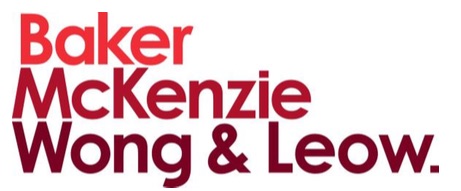3 April, 2019
What's changing
On 17 January 2019, the Ministry of Law released its report on the Copyright Review following two rounds of public consultations in 2016 and 2017. The Ministry of Law will make amendments to the Copyright Act to provide better support to creators and the use and enjoyment of creative works in the digital age. A copy of the report can be found here. The key proposed amendments outlined in the report include, among others:
-
Enhancement of creators' rights
-
Under the current system, creators are not attributed to their work when others use it. The proposed amendments will give creators the right to be attributed as the creator of their work, regardless of whether they continue to own or have sold the copyright. Defences and exceptions will also be available to the right of attribution.
-
Further, any works commissioned are currently owned by the commissioning party. The proposed amendments now give default ownership of copyright in all work to creators. This will include photographs, sound recordings and films that are commissioned unless otherwise agreed in writing. This will give protection to unknowing creators who may not understand the law particularly in circumstances where there are no contracts dealing with copyright ownership.
-
There will be new enforcement measures made available to copyright owners to deter retailers and service providers from profiting off the provision of access to content from unauthorised sources, such as through the sale of set-top boxes that enable access to content from unauthorised sources, also commonly known as illicit streaming devices. The amendments will prohibit the import and sale of such devices. Civil and criminal liability will be imposed on those infringing retailers and service providers.
-
-
Improvement of users' access to copyrighted materials
a. In addition to the exceptions currently available, non-profit schools and students will be able to use online resources that are accessible without payment for instruction purposes. Online resources that require payment will not be covered by this exception. This additional exception will make it easier for teachers and students to use online materials in classes and facilitate instruction.
b. A new exception will be included to allow copying of copyrighted materials for the purpose of data analysis, where the user has lawful access to the materials that are copied. This is particularly relevant for those who use automated techniques to analyse text, data and other content to generate insights and risk infringing copyright as they typically require large scale copying of work without permission.
3. Aid to creators and users in the collective licensing of copyrighted works
a. Presently, collective management organisations (CMOs) are unregulated. The amendments will introduce a class licensing scheme for CMOs, which will help to ensure that CMOs operate with high standards of transparency, governance and accountability, and are able to facilitate copyright licensing transactions efficiently. Any entity carrying out licensing activities in Singapore will automatically be subject to and have to comply with all licence conditions that will be administered by IPOS. CMOs will also be required to have dispute resolution mechanisms in place for creators.
4. Other proposed changes
-
Clarity on situations when copyright exceptions would not be restricted by contractual terms.
-
The duration of copyright protection for unpublished works will be limited.
-
New exceptions for galleries, libraries and museums to make copies of items or publicly perform audio-visual materials for the purposes of exhibition and inclusion in publicity materials.
What it means for you
The proposed amendments have been introduced to adapt to the changing nature and developments in technology today particularly the reproduction of copyright material. Once the proposed amendments have been implemented, creators and users, whether individuals or businesses, will have the benefit and enjoyment of their copyrighted material, and added protection against infringers of their works. This will ensure in the digital age that creators are attributed rights to their works enabling them to build their reputation and receive proper incentive in circumstances where works may be misattributed. A third public consultation will take place once the draft legislation is released, which will allow organisations and individuals the opportunity to make further submissions.
For further information, please contact:
Andy Leck, Principal, Baker & McKenzie.Wong & Leow
andy.leck@bakermckenzie.com





